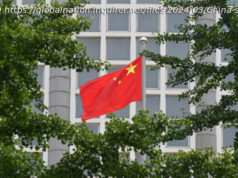Lydia Lam Pui-ying will further her study at Kyoto University in Japan
Hong Kong and Japanese scientists have discovered a new way to make biofuel from rice straw, which may offer a cheaper alternative to chemical methods currently employed. However, due to a lack of research opportunities in the city, a leading scientist in the study will have to seek support elsewhere. Lydia Lam Pui-ying, a research assistant at the University of Hong Kong, spent three years studying tricin, a special component in the cells of cereal plants, paving the way for publication of the final study in scientific journal. The 29-year-old researcher said she committed herself to plant science in secondary school but, after obtaining a bachelor’s degree and a doctorate at HKU, she found it difficult to develop a career in her home city. “To be honest, there is no way forward as a plant scientist in Hong Kong, which is very unfortunate, ” Lam said. “Many [science] students here have published papers in prominent journals, but most of them were not able to stay in the research field.” In September, Lam will start her postdoctoral fellowship at Kyoto University, where she will continue her work on plant cell research and the production of biofuel. In the study published last month, Lam and her colleagues from HKU and Kyoto found that energy production from rice straw could be increased by 37 per cent after inhibiting the production of tricin in the plant. The process, involving genetic engineering, makes it easier to break down cellulose – an organic compound in plant cells – into glucose, which is then used to produce ethanol. Plant biochemist Clive Lo Sze-chung, another core member of the study, said the technology may replace the costly chemical method being used today. “The most important thing is that we managed to increase glucose yield without hurting rice production, ” Lo said. “We hope some companies will come to cooperate with us, so we can apply this technology on a larger scale.” The same strategy may also be used on other crops such as maize and sorghum, he added. “Every plant cell has cellulose, ” Lo said. “If we can extract it in an efficient way, it will become a major source of clean energy.” Biofuel production was a hot topic for scientific research globally, but in Hong Kong plant scientists were struggling to get funding and jobs due to a lack of research programmes and biotech companies, the researchers said. “Hong Kong is relatively weak in science, especially plant science, ” Lam said. “It is understandable because we don’ t have an agricultural industry, but I hope the city can make progress in the future.” Lo, who also teaches Lam at the university, said he encourages young scientists to gain international experience, but the government should also create opportunities for those who want to stay. “Compared with medical research, we don’ t have much resources in plant science, ” he said. “If the government can increase its support, we will be able to get more local students to work in this field.” A spokesman for the Innovation and Technology Bureau said that the government had put in place various programmes to support research and development in Hong Kong. New initiatives included the development of a technology park, which would attract leading institutions and bring science talents to the city, he added.






